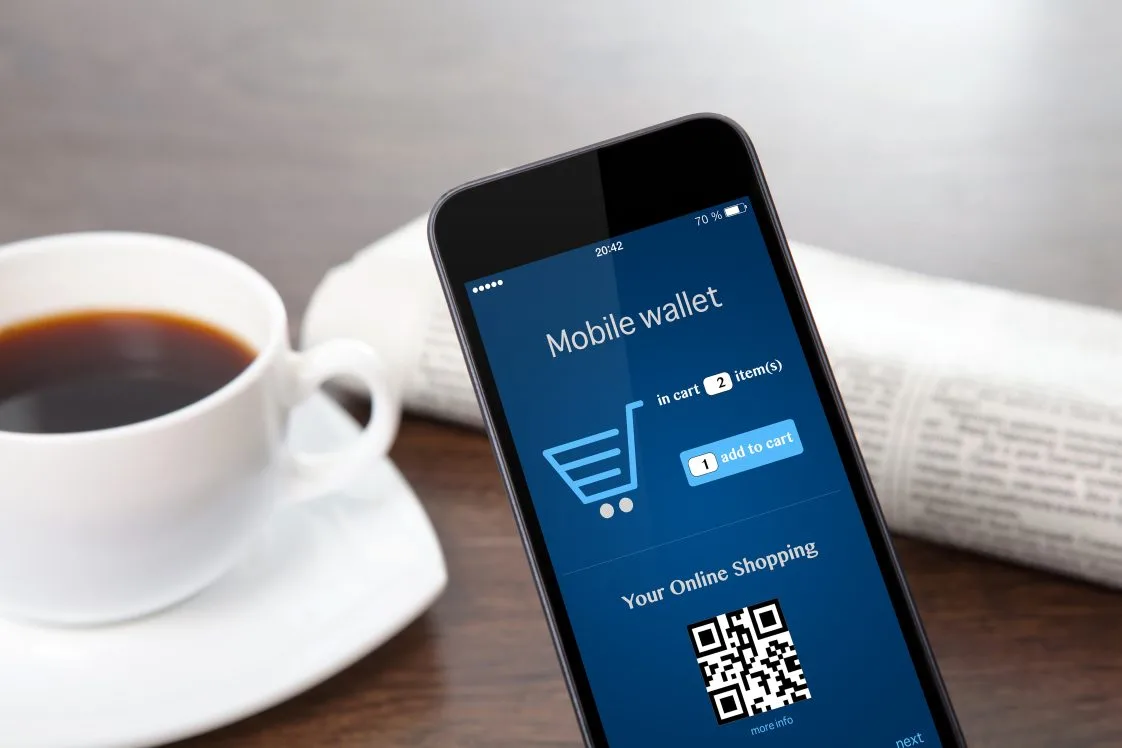Wallets, Wallets, Everywhere: Getting Started with Digital Wallets in eCommerce
We look at digital wallets and go over a few things to consider before adding them to your payment solutions strategy.
By Eric Anderson
Director of Payments Operations
Digital wallets are popular payment options for eCommerce customers today. But if you’re like most retailers, you’re wondering how many and which digital wallets to add to your payment checkout. There’s a lot of confusion around this topic and in my work with eCommerce retailers, I am often asked to consult on it. So, I thought we’d look at digital wallets and go over a few things to consider before adding them to your payment solutions strategy.
First off…
What exactly are digital wallets?
A digital wallet is an application that securely stores a customer’s payment information and passwords in the cloud. A mobile wallet is a digital wallet used on mobile devices. This eliminates the need for the customer to have the credit card available when purchasing online. Digital wallets are accessible from any connected device as long as the merchant offers the app in their checkout process.
Digital wallets are not tenders. They simply store existing payment information. A user enters payment information once and typically does not have to type it in again — though some digital wallets like Google Pay require the CVV/CVC code for verification.
How do digital wallets work?
Digital wallets transmit payment data through the digital wallet app installed. Some of the transmission methods are:
- Application Programming Interface (API) calls through a retailer’s website.
- Quick Response (QR) codes.
- Near Field Communication (NFC) that allows two smart devices to transfer data if they are in close proximity to each other.
- Magnetic Secure Transmission (MST) where the phone creates an encrypted field around it that the point of sale can read.
Regardless of the method, when the customer pays, they use their digital wallet to connect to the retailer, and the payment is securely routed through the credit card networks and banks for payment processing.
What are the customer benefits of digital wallets?
The biggest benefits for customers are convenience and security. They can simply use their device and since their information is stored securely in the cloud, there is less risk of payment data being stolen or lost. Unsecured phones, however, that have wallets on them are susceptible to fraud if the device is stolen or lost.
Some of the benefits include:
- Convenience: As noted, digital wallets eliminate the need for physical cash or credit cards. Users can simply add their debit or credit card details to the wallet app and make payments easily with their smartphones or at websites. It saves time during checkout as customers don’t need to search for their wallet or enter card details repeatedly.
- Security: Digital wallets use advanced encryption and tokenization techniques to protect financial information. Instead of sharing your actual card details, a unique token is generated, adding an extra layer of security. Additionally, some wallets offer features like biometric authentication (fingerprint or face recognition) to authorize payments, making them more secure than traditional payment methods.
- Contactless Payments: Digital wallets support contactless payments, allowing users to make transactions by simply tapping a smartphone or smartwatch on a compatible payment terminal. This feature is especially useful in situations where physical contact is limited or for faster checkout in crowded places.
- Loyalty Programs and Discounts: Many digital wallets integrate with loyalty programs and offer exclusive discounts or cashback rewards when making purchases through the wallet. This encourages users to use the wallet for transactions, saving money or earning additional benefits.
What are the benefits for merchants?
Merchants that offer digital wallets cater to a convenient customer experience and greater security in checkout. Adding wallets will increase your authorization rate, drive costs down, or help increase the average order value, and above all improve customer experience.
What are the most popular digital wallets?
There are numerous digital wallets, but the most used today include:
- PayPal: PayPal is a widely used digital payment platform accepted by numerous online merchants worldwide. It enables users to make secure online payments using their PayPal account or linked debit/credit cards. PayPal supports both personal and business transactions and offers features like buyer protection and the ability to send money to friends and family. It also integrates with many e-commerce platforms, making it a popular choice for online transactions.
- Google Pay: Google Pay is available on both Android and iOS devices. It offers seamless integration with Google services and allows users to send money to friends, pay for purchases online and in stores, and manage loyalty cards. It also supports person-to-person payments and can store event tickets and boarding passes.
- Apple Pay: Apple Pay is exclusive to Apple devices (iPhone, Apple Watch, iPad, and Mac). It integrates well with the Apple ecosystem and provides a secure and convenient way to make payments. Apple Pay supports in-store, in-app, and online purchases. It also offers features like transit card integration and person-to-person payments.
- Amazon Pay: Amazon Pay is primarily designed for making purchases on the Amazon platform. It allows users to check out quickly on Amazon and partner websites using their Amazon credentials. It also provides a streamlined checkout experience and supports recurring payments. While primarily focused on e-commerce, Amazon Pay can be used at select physical stores as well.
- Samsung Pay: Samsung Pay is available on select Samsung devices and offers both NFC-based and limited Magnetic Secure Transmission (MST) technology. This means it can be used at almost any payment terminal, even those without NFC support. Samsung Pay supports in-store, online, and in-app purchases, and it also integrates loyalty cards and offers special promotions for Samsung users.
How do I know if I should add wallets, which ones, and how many?
Merchants often tell me that they need to add all the wallets available today. This is where I encourage them to take a step back and really think through the impact. Like any payment solution, adding wallets needs to be done strategically with an eye on what it will do to customer experience and what it will do for the business.
Here are some things merchants need to consider:
- Why do we want to add wallets? What are we hoping to gain?
- Which wallets will best fit our needs and customer profiles? (You rarely want to have all of the digital wallet options as this gets complex and costly and feels overwhelming to customers.)
- What are the costs of each wallet and how will that impact our other payment methods?
- How do we integrate it into our payment solutions?
- What are the compliance and legal issues we need to consider?
- How many revenue streams do we want to manage?
- Who on our team will do the research and A/B testing?
- Do we have the resources and data available to understand how wallets impact retailers in our specific market?
- How will we keep ahead of emerging wallet trends?
These are all questions that merchants need to consider before they add wallets.
Radial can help with wallets
Often, merchants tell me that they simply don’t have the resources or expertise to truly vet each digital wallet and its potential impact on the business. Radial offers digital wallet consulting, data analysis, and integration as part of our Radial Payment Solutions — a fully managed service. We make adding wallets simple, strategic, and successful.
If you’re curious to learn more about how Radial can support you in adding digital wallets to your payment solutions, contact us today. We’d love to help.

As Director of Payment Services, Eric Anderson is responsible for Radial’s payment ecosystem and chargeback team. Prior to his current role, Eric was Business Process Improvement Manager contributing to increased revenue and cost reduction. Eric has a diverse background in management and education. You can follow Eric on LinkedIn.
Want to know more about digital wallets?
